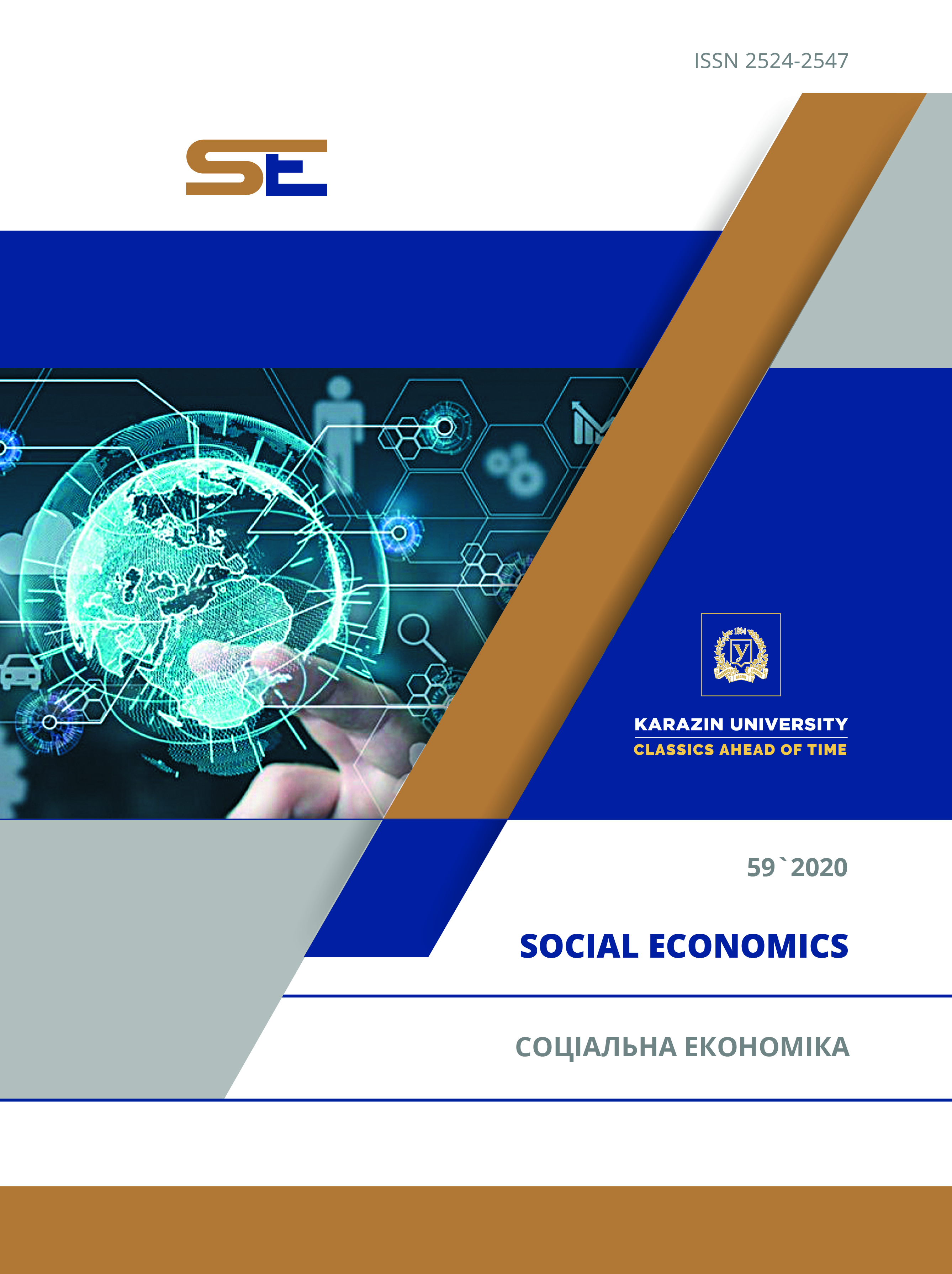Implementation of social capital as a key driver of behavioral economy formation (in ukrainian)
Abstract
The article focuses on the study of theoretical and practical component, analysis of history and application of modern knowledge of the concept of "social capital" in the formation of new direction of economic science, which is a behavioral economy. The concepts of general issues, adoption of common and separate decisions are based on mutual trust and unified communications are taken into account. More important problems of the present time, such as poverty, quality of life, solidarity, consciousness of every citizen, are raised, revealing the problem of welfare not on the surface, but from the inside, analyzing the causes. Assessment and analysis of Happiness Index, interrelation and interaction between a lucky man and social capital was conducted. Such economic phenomena as economic consciousness and economic behaviour that can offer business and world politics confidently with their theories and knowledge were identified. Building and forming social capital in unlimited connections and relationships gives hope to finding ways of solving harmonious problems of economic, social and political nature, improving opportunities of rational component not only at the state level, but also at the level of each person. Studying the concept of ‘economic subject’, which is more complicated and not limited to the scope of rationality in decision-making, aggravates the extremely important need for closer definition and analysis of economic mechanisms for real human behaviour. In this aspect the behavioral economics helps us and allows understanding each person’s behaviour in different situations. All life areas of economic entities should be aimed at improving the living standards of the population, and it is impossible without public trust in the branches of government and business. The effectiveness of the modern competitive structure in the economy, using social capital, can revive the trust and confidence of each person.
Downloads
References
Banerjee, A., Dufilo, E. (2018). Poor Economics: A Radical Rethinking of the Way to Fight Global Poverty. Kiev: Nashformat. Retrieved from https://www.livelib.ru/book/1002831664-ekonomika-bidnosti-yak-zvilniti-svit-vid-zlidniv-abhidzhit-banerdzhi.
Center for Humanengineering Technology. (2020). Rating of the edge of the country for the rest (2006-2020) of the Sustainable Development Solutions Network. Humanitarian encyclopedya: Doslijennya. Center for Humanengineering Technology, 2006-2020 (editing: February 8, 2020). Retrieved from https://gtmarket.ru/ratings/world-happiness-report/info.
Burdieu, P. (1985). Forms of Capital. Handbook of Theories and researches for sociology of education.
Burdieu, P. (2002). Forms of Capital. Economic sociology, 3, 5, 60‒74.
Putham, R. D., Leonard, R., & Nanette, R. J. (2001.). Creating democracy. Traditions of creating social activity in modern Italy. K. : Basics, 2001.
Bekker, G. S. (1964). Human capital: Theoretical and empirical analysis, with a special reference to education. Chicago:University of Chicago, press.
Fukuyama, F. (2008). Social Capital. Independence Cultural Clockwriting "Yu", 53. Retrieved from http://www.ji.lviv.ua/n53texts/fukuyama.htm.
Putnam, H. (1999). Philosophy of Consciousness. M. : House of Intellectual Book.
Coleman, J. (2001). Capital social and human. Social Sciences and Modernity, 3, 122‒139.
Lazebnyk, L., Nykytchenko, N., Hurochkina, V., & Kravchenko, L. (2019). Modeling of Functional Dependence Emergent Qualities of Economic Systems. Proceedings of the 6th International Conference on Strategies, Models and Technologies of Economic Systems Management (SMTESM 2019). (Khmelnytskyi, Ukraine, September, 2019). Atlantis Press. Vol. 95. doi: 10.2991/smtesm19.2019.48.
Gurochkina, V. V., & Kravchenko, L. V. (2020). Principles and patterns of industrial enterprises development in the merchandising economy. Market Infrastructure, 42. doi: 10.32843/infrastruct42-27.
Gurochkina, V. (2019). Emergennist – Phenomenon of complex economic systems. Bulletin of Khmelnytsky National University. Economic sciences, 6, 63‒71. doi: 10.31891/2307-5740-2019-276-6-63-71.
Gurochkina, V. (2017). Evaluation of implementation of principles of corporate social responsibility at domestic Enterprises. Economics, Business Administration, Law, 2(2), 162–173. Retrieved from http://ir.nusta.edu.ua/jspui/ /bitstream/doc/2957/1/3181_IR.pdf.
Fukyama, F. (2006). Doverye : socjal'nye dobrodetely y put' k procvetanyju. Moscow: ACT Keeper.




